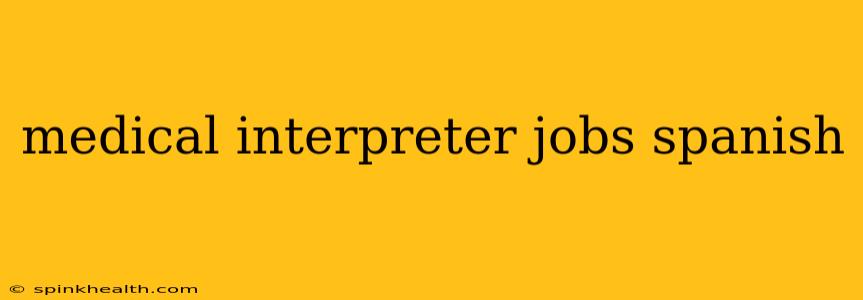Unlocking Worlds: A Journey into the Thriving Field of Medical Interpreting in Spanish
The hushed tones of a doctor's office, the urgency in a hospital hallway – these are the settings where medical interpreters play a vital, often unseen, role. As a crucial bridge between healthcare professionals and Spanish-speaking patients, medical interpreters ensure clear communication, leading to better health outcomes and increased patient satisfaction. But what does a day in the life of a medical interpreter truly entail? And what are the paths to entering this fulfilling and in-demand career? Let's explore.
What does a medical interpreter do?
A medical interpreter is far more than just a translator; they're cultural navigators, sensitive listeners, and advocates for clear communication. Imagine this: a frantic mother rushes into the emergency room, her child clutching their side, speaking only Spanish. The doctor, understanding the urgency but not the language, relies on the medical interpreter. The interpreter doesn't just translate words; they convey the nuances of emotion, the subtle shifts in tone, ensuring the doctor grasps the full picture of the situation and can provide the best possible care. This involves not just translating medical terminology but also cultural sensitivities and patient anxieties.
What are the different types of medical interpreter jobs?
The world of medical interpreting offers diverse opportunities. Some interpreters work in hospitals, providing on-site support for patients and doctors. Others specialize in telehealth, interpreting remotely via video conferencing. There are also independent contractors who work with various clinics, doctors' offices, and even legal settings related to medical malpractice cases. The variety is extensive, offering flexibility and the chance to specialize in a particular area of medicine.
How can I become a medical interpreter?
The path to becoming a qualified medical interpreter generally involves several key steps. Firstly, native or near-native fluency in both Spanish and English is paramount. Beyond this, many interpreters pursue formal training programs specifically designed for medical interpreting. These programs often cover medical terminology, interpreting techniques, ethics, and cultural competency – crucial elements that shape effective communication within the healthcare setting. Professional certification, while not always mandatory, can significantly enhance your career prospects and credibility.
What qualifications do I need to become a medical interpreter?
While specific requirements vary by location and employer, several qualifications are highly desirable. These typically include:
- Native or near-native fluency in Spanish and English: This ensures accuracy and fluency in both languages.
- Formal training or certification in medical interpreting: This demonstrates competency and knowledge of medical terminology and interpreting techniques.
- Strong understanding of medical terminology: Being comfortable with complex medical terms and their accurate translation is essential.
- Excellent communication and interpersonal skills: Building rapport with both patients and healthcare providers is crucial for effective interpretation.
- Cultural competency: Understanding cultural differences and sensitivities that impact healthcare communication is vital.
What is the salary range for medical interpreters?
The salary for a medical interpreter can vary depending on factors such as experience, location, type of employment (freelance vs. salaried), and certification. However, this is generally a well-compensated field offering attractive earning potential, particularly for experienced and certified professionals.
Is there a demand for Spanish medical interpreters?
The demand for Spanish medical interpreters is consistently high and growing. The increasing Hispanic population in many countries creates a significant need for effective cross-cultural communication within the healthcare system. This demand extends across various settings, ensuring a steady stream of opportunities for qualified interpreters.
The journey into the world of medical interpreting in Spanish is a rewarding one, combining linguistic skills, cultural awareness, and a dedication to enhancing healthcare access. It's a field where you're not just translating words, but bridging worlds, shaping understanding, and contributing to better health outcomes for countless individuals.

